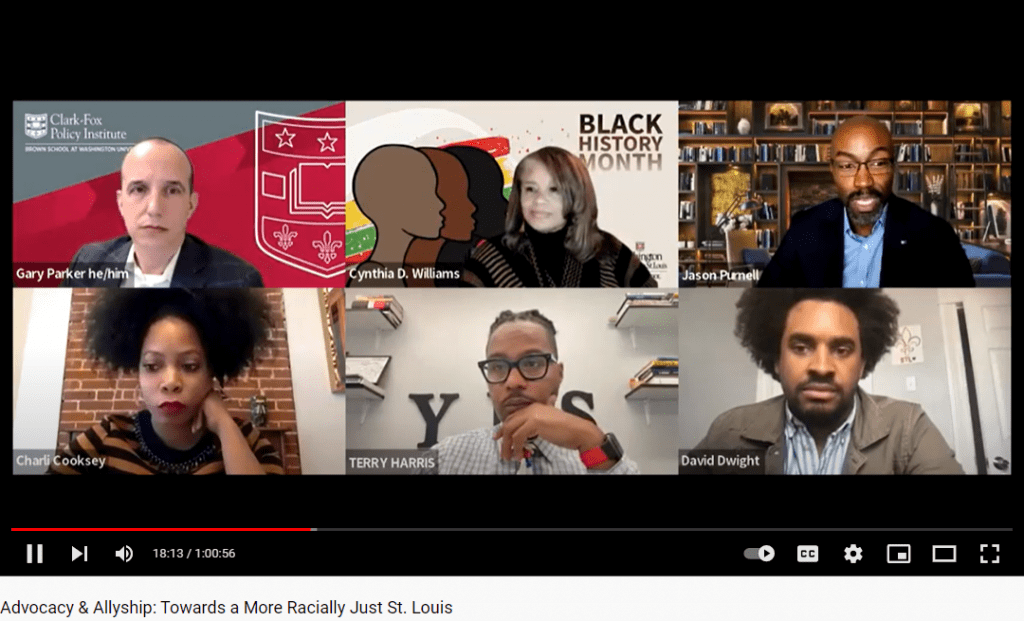(March 2022) As part of the Brown School’s Black History Month celebration, the Clark-Fox Policy Institute co-hosted “Advocacy & Allyship: Towards a More Racially Just St. Louis”. Over 240 viewers from across the region joined some of the most respected local Black leaders to discuss the gains made, the challenges that remain, and ways in which everyone can contribute to the movement to advancing racial equity.
Co-moderators, Cynthia Williams, assistant dean for community partnerships, and Gary Parker, director of the Clark-Fox Policy Instutute, guided the conversation toward a rich discussion about pressing regional matters, and how the panelists are striving to carve pathways that spark innovation and equitable change for the region. Joining the discussion was Jason Purnell, PhD, vice-president of Community Health Improvement, BJC HealthCare associate professor, Brown School; Charli Cooksey, Founder & CEO, WEPOWER; David Dwight, IV, Executive Director & Lead Strategy Catalyst, Forward Through Ferguson; and Terry Harris, EdD, Executive Director of Student Services, Rockwood School District.
Purnell touched on the work that he and his team at BJC HealthCare are spearheading to combat systemic racism and health disparities that have long been present in St. Louis City and North St. Louis County. He shared, “This is an exciting opportunity to take some of the research done with Health Equity Works to translate the findings into activity.”
It was powerful and moving to hear Dr. Harris speak to how he prioritizes liberation and creating agency for Black and brown students to be seen. He shared, “We must have a foundation steeped in seeing the humanity of Black and brown kids as a start before we can do anything.” He encouraged viewers to review local published landmark studies and ask ourselves if we are ok with the way things are for our children, specifically when the St. Louis Equity Indicators Report shows that we are failing our children.
Each panelist emphasized the importance of working upstream to transform policies to support the work taking place on the ground. Charli Cooksey expressed the need to “shift the mental models that keep existing systems and practices anchored. If we are not shifting hearts and minds, policy change won’t be as fertile.”
“If we are not shifting hearts and minds, policy change won’t be as fertile.”
During the question-and-answer portion of the session, Parker noted multiple trending questions regarding what white allies can do to contribute to creating a more racially equitable St. Louis. David Dwight encouraged those interested to become informed about white racial identity and commit to doing self-work; get engaged in social movements that already exist to advance racial equity; and donate to Black led organizations across the region.
A recording of this program is available on the Brown School’s YouTube page.
